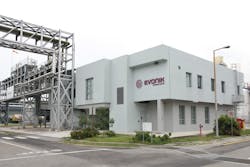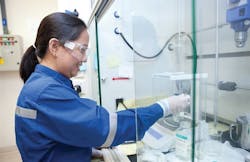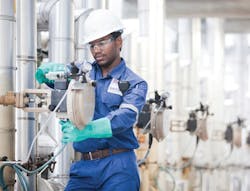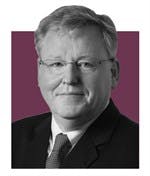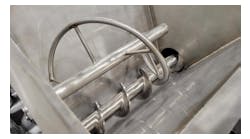Rapid urbanization, changing demographics and the rise of the middle class are some of the main factors that influence the demand for transportation fuel, petrochemicals and specialty chemicals in Asia. The Asia-Pacific region continues to be the fastest growing market for the lubricants sector. In 2015, the market dominated 40 percent of the global lubricant demand in the world.1 This figure continues to rise with an increase in lubricant demand from the marine and shipbuilding sectors2 to generate greater resource efficiency. During the last two years, across the entire value chain of activities, companies in the lubricant industry have invested more than $400 million in Singapore.
Singapore is also one of the leading energy and chemical industry hubs, and this is showcased through the rapid development of Jurong Island, an artificial island located near the main island of Singapore. This integrated complex is home to many of the world’s energy and chemical companies. With the development of industrial infrastructure like the island, research and development (R&D) capabilities, and a focus on advanced manufacturing, Singapore is a base for the chemical industry’s complex needs.
Evonik now produces 40 percent of its global portfolio in Singapore, transforming it into the largest of five additive plants worldwide.
Singapore expansion & digitalization
In May 2015, Evonik Industries, a German specialty chemicals company, announced the expansion of its oil additives plant on Jurong Island. As a leading provider of oil additives, Evonik aimed to grow its presence in Asia and bring more value to its Asian customers. The Singapore plant expansion meets the highest standards of safety, efficiency, productivity and quality and plays a pivotal role in ensuring supply security for Evonik’s customers.
An inadequate alarm management system may cause unplanned downtime and affect the safety of a plant. Hence, with the recent plant expansion, the oil additives plant researched improving its existing alarm management system by installing Siemens’ Simatic PCS 7 Alarm Management Solution, one of the company’s flexible, integrated automation and drive solutions for the chemical industry, which has helped Evonik reduce the alarm load in the control room by more than 50 percent through filtering, aggregating and prioritizing alarms.3
Having reliable alarm management practices is important, especially when working in an area of the chemicals industry such as the lubricants sector. The process performance and safety of the production plant might be affected if the plant operators fail to respond to multiple plant disturbances. According to industry benchmarks, a plant operator in the petrochemical industry is subjected to an average of 1,500 alarms per day, more than 10 times higher than the Engineering Equipment and Materials Users Association recommendation of 144 alarms per day. Therefore, plant operators are faced with more alarms than they effectively can process.4
When there are too many alarms, operators have to be empowered to manage and prioritize which alarms are more critical than others. Furthermore, it is imperative to have the ability to quickly and easily discover the source of the alarm and also identify “nuisance” alarms through a built-in alarm frequency display.
Siemens also has supplied Evonik’s Methionine plant with a fully integrated energy management solution since the manufacturing plant came on stream in 2014. Evonik’s Methionine production complex manufactures an amino acid for healthy and sustainable animal nutrition. As such, the manufacturing plant requires reliable power supply to ensure smooth operations and meet the demands of complex chemical production processes. The power supply, designed for industry, buildings and infrastructures is a fully integrated energy management solution, providing a one-stop-shop solution for the plant’s entire electricity supply across the entire value chain. With a reliable power supply, other than keeping the production up and running, the company precisely meets the demands of complex chemical production processes.
As one of the major foreign investors in the local manufacturing sector, the company’s manufacturing plants, using these advanced digitalization solutions, contributes to Singapore’s development goal of becoming a global energy and chemicals hub.
With the expansion of its Singapore oil additives plant in 2015, Evonik has nearly doubled the plant’s production capacity, transforming it into the largest of its five oil additives plants worldwide. The improved automation and digitalization at the plant enables Evonik to reduce energy consumption and waste by 10 to 20 percent. Evonik continues to expand its operations in Singapore with a second methionine plant, which it announced during a groundbreaking ceremony in October 2016. This brings the company’s annual production capacity of the amino in Singapore to 300,000 metric tons and around 730,000 metric tons globally. Evonik’s investment underlines its confidence in Singapore as a high-level manufacturing ground since such chemical plants are usually built only once in every seven to eight years.5
Every industry has its own challenges whether it is in terms of energy management, improving productivity or ensuring the highest standard of safety. Globalization processes are driving competition and cost pressure through the industrial world including the chemical industry. An experienced, innovative partner to the chemical industry aims to support the petrochemical, base chemical, and specialty and fine chemical industries in improving productivity, efficiency and flexibility of its customers through a portfolio of automation and digitalization systems from process instrumentation and analytics to drive technology and industrial controls for energy management.
With digitalization, Evonik has minimized downtime and maximized energy efficiency while simultaneously ensuring power quality and flexibility.
References
2. http://shipandbunker.com/news/apac/360796-report-asia-pacific-to-dominate-lubricant-market-by-2016
3. Siemens, Chemical Industry in Southeast Asia, Siemens Fact Sheet, 25 August 2016
4. http://www.industry.usahttp://.siemens.com/automation/us/en/process-control-system/pages/alarm-management.aspx
Raimund Klein is the executive vice president of Siemens Pte Ltd, Singapore. He is the country lead for the Digital Factory and Process Industries and Drives Division. Klein has more than 30 years of experience, working with Siemens since 1986. He was born in Homburg, Germany, and has a master’s degree in computer and information sciences and support services from the University of Giessen, Germany. He may be reached at [email protected].
